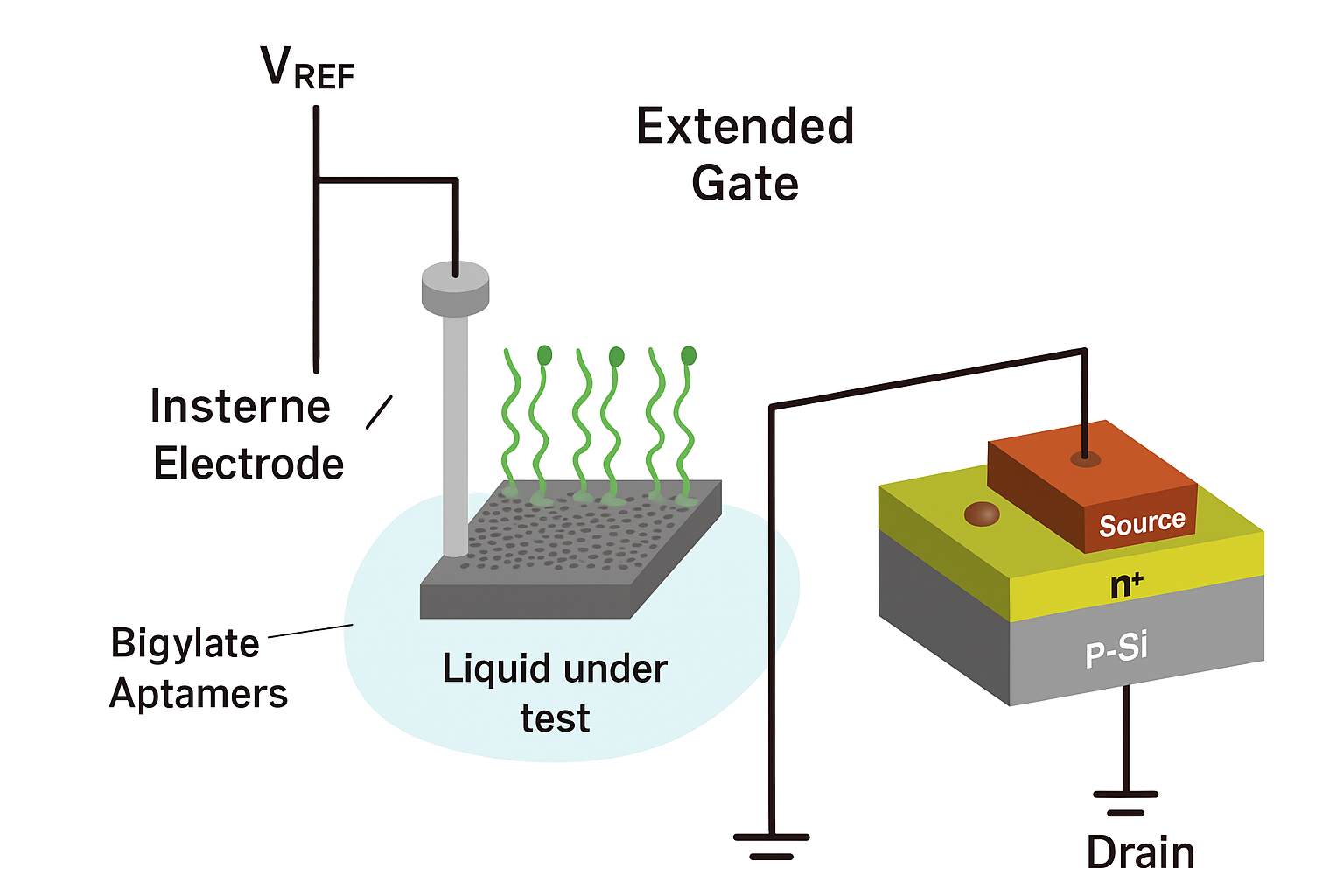
Real-time monitoring of physiological parameters is a key requirement for modern point-of-care diagnostics, offering fast results and minimizing the need for invasive, continuous sampling. However, the complex composition of body fluids challenges sensor performance, and the materials used in sensing devices can pose biocompatibility risks, especially in potential in vivo applications.
This thesis will focus on the development and optimization of Extended-Gate Field-Effect Transistor (EGFET)-based biosensors that combine high sensitivity with biocompatibility. EGFETs are an ideal platform for biofluid sensing, as their remote sensing electrode allows for flexible surface functionalization without exposing the transistor directly to the liquid environment.
A key aspect will be the implementation of multiple extended gates with differential measurement modes, which enhances detection accuracy and selectivity, enabling reliable analyte monitoring directly in vivo.
The work will involve:
Fabrication and surface modification of extended gate electrodes using biocompatible materials
Characterization of sensor performance in both buffer solutions and complex biofluids
Evaluation of sensor stability, material degradation, and suitability for long-term use in physiological conditions
An independent and interdisciplinary work style is expected, along with interest in working at the interface of materials science, bioelectronics, and analytical chemistry.
Starting date: ASAP

Real-time monitoring of physiological parameters is a key requirement for modern point-of-care diagnostics, offering fast results and minimizing the need for invasive, continuous sampling. However, the complex composition of body fluids challenges sensor performance, and the materials used in sensing devices can pose biocompatibility risks, especially in potential in vivo applications.
This thesis will focus on the development and optimization of Extended-Gate Field-Effect Transistor (EGFET)-based biosensors that combine high sensitivity with biocompatibility. EGFETs are an ideal platform for biofluid sensing, as their remote sensing electrode allows for flexible surface functionalization without exposing the transistor directly to the liquid environment.
A key aspect will be the implementation of multiple extended gates with differential measurement modes, which enhances detection accuracy and selectivity, enabling reliable analyte monitoring directly in vivo.
The work will involve:
Fabrication and surface modification of extended gate electrodes using biocompatible materials
Characterization of sensor performance in both buffer solutions and complex biofluids
Evaluation of sensor stability, material degradation, and suitability for long-term use in physiological conditions
An independent and interdisciplinary work style is expected, along with interest in working at the interface of materials science, bioelectronics, and analytical chemistry.
Starting date: ASAP